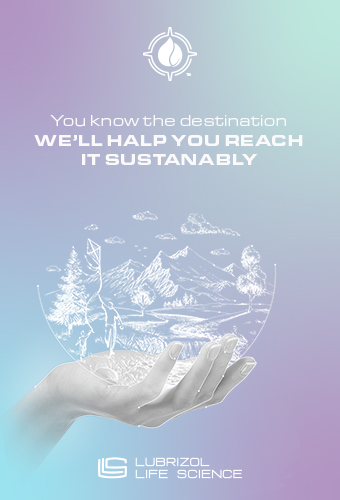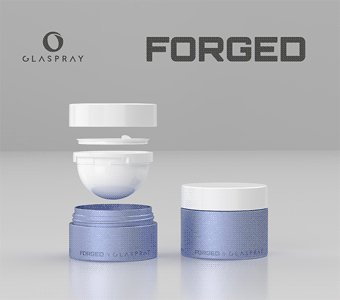
Albéa, the world’s leading producer of cosmetic packaging, just inaugurated a new facility dedicated to the production of plastic and laminated tubes. The plant is located in St. Ménehould, in Northeast France. The Albéa Argonne new facility results from the merger of the group’s two factories in the region (Sainte Ménehould and Vienne Le Château). Albéa invested about 20 million euros in the new site that will become the group’s centre of excellence in the tubes business with the aim to support its ambitions to gain market shares in a segment that is deemed mature. According to François Luscan, Albéa’s tubes business, which accounts for 33% of the group’s turnover, is expected to grow by approximately two digits.
1 billion tubes and caps per year
With 600 employees, four production units (caps, laminated tubes, small diameter plastic tubes and premium plastic tubes), an R&D and quality control laboratory, a colorimetry service and several decoration lines including hot stamping, screen printing, offset or flexography, the Albéa Argonne facility has a production capacity of 1 billion tubes and caps per year. To date, it is group’s largest factory.
This new site, which started operations in June, is mostly serving French clients (90% of the business). It is located a hundred kilometres from the Albéa Vandières plant, which also specializes in the manufacture of tubes, and “is integrated into a European network for plants that is being modernized and allows us to boost our market,” says Laurent Villemin, President Albéa Tubes France and vice president of Albéa Tubes Europe.
Flexibility and proximity
Through this investment, Albéa bets on the advantages of being located close to its main European customers, and on a strong flexibility.
Not only the site is located close to the highway but is also adjacent to a storage site for 15,000 pallets, which is dedicated to Albéa and is managed by its logistics partner TransAlliance. Main advantage, according to the group: "a strong optimization of transport, a better control of incoming and outgoing flows, as well as the optimization of intermediate stocks and truck fleet." Every step of the supply chain has also been redesigned to reduce the overall carbon footprint of the site and products. Thus, according to Albéa, CO2 emissions will be reduced from 6.5 tonnes to 1.3 tonnes and 20% of energy savings will be achieved.
"If we are able to produce quality products in France, at a reasonable cost, and to deliver them within short delays, there is no reason for our customers to source in China or elsewhere," adds François Luscan. For him, the main strengths of the plant are the technical skills of its staff, its responsiveness and flexibility and the integration of finishing steps, which reduces the time-to-market.
Albéa also relies on the increased flexibility of its sites and on its European network to absorb the variations in production needs. Variations that can reach 20-30%, according to François Luscan, and need to be transferred from one plant to another depending on changes in customer needs.
Worldwide growth
Albéa intends to continue its investment strategy and to further reduce the time-to-market for its customers through its global implementation strategy. With 16,000 employees and 45 production sites in 14 countries, Albéa is located on all continents except Africa, which is currently delivered from India or from Europe. "But this is an area that we observe closely," says François Luscan "beyond a critical volume, a local presence will prove necessary."
In the future, much of the group’s growth will come from emerging markets. Albéa has been among the first to settle in Indonesia and has tripled the size of its local factory. The group will also open a new plant in Brazil, where it forecasts to keep growing at a double-digit rate.
"This year we have invested between 8 and 9% of our revenue and we’ll do the same in 2014, and at a worldwide scale," insists François Luscan.
In Europe , the next step will be the opening in 2014 of a new mascaras plant in Bottanuco, near Milan, Italy.



































